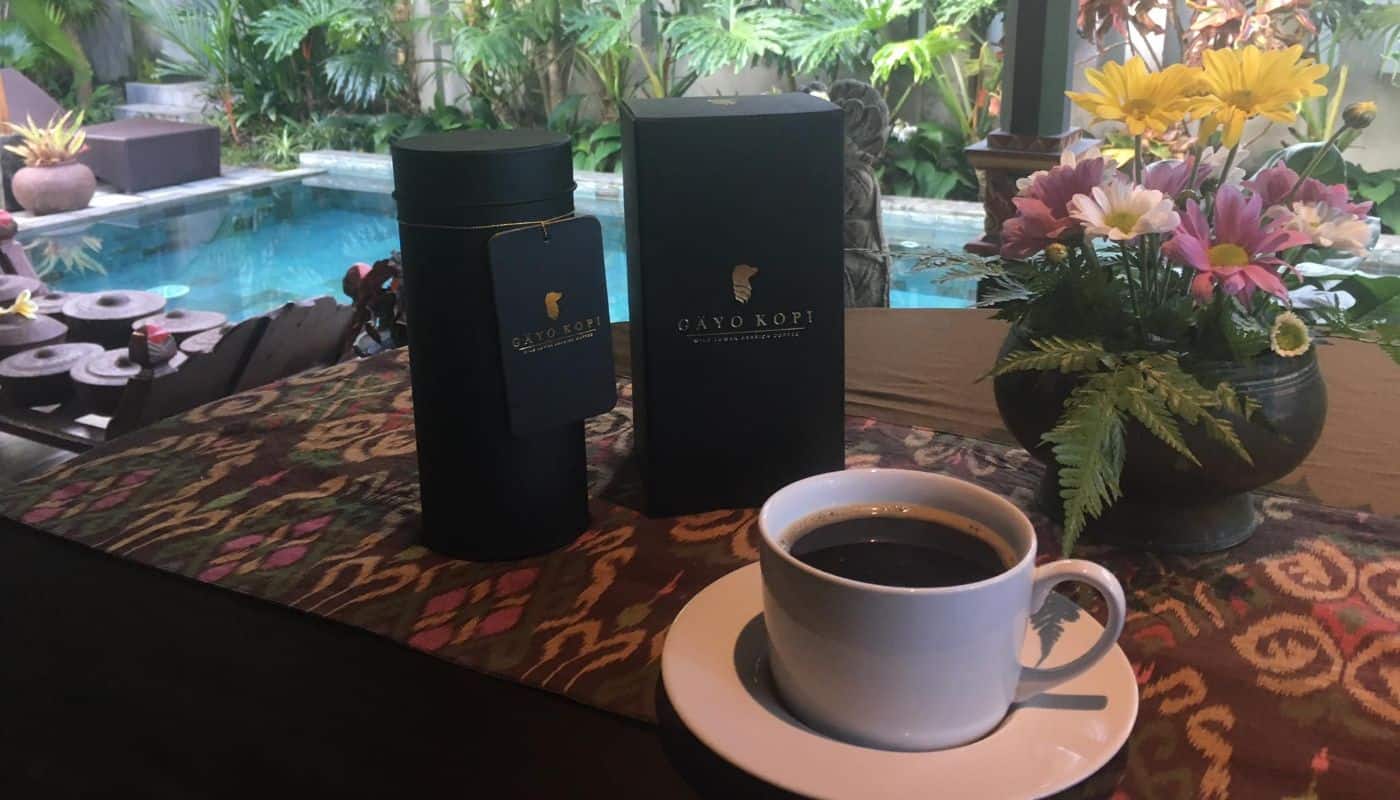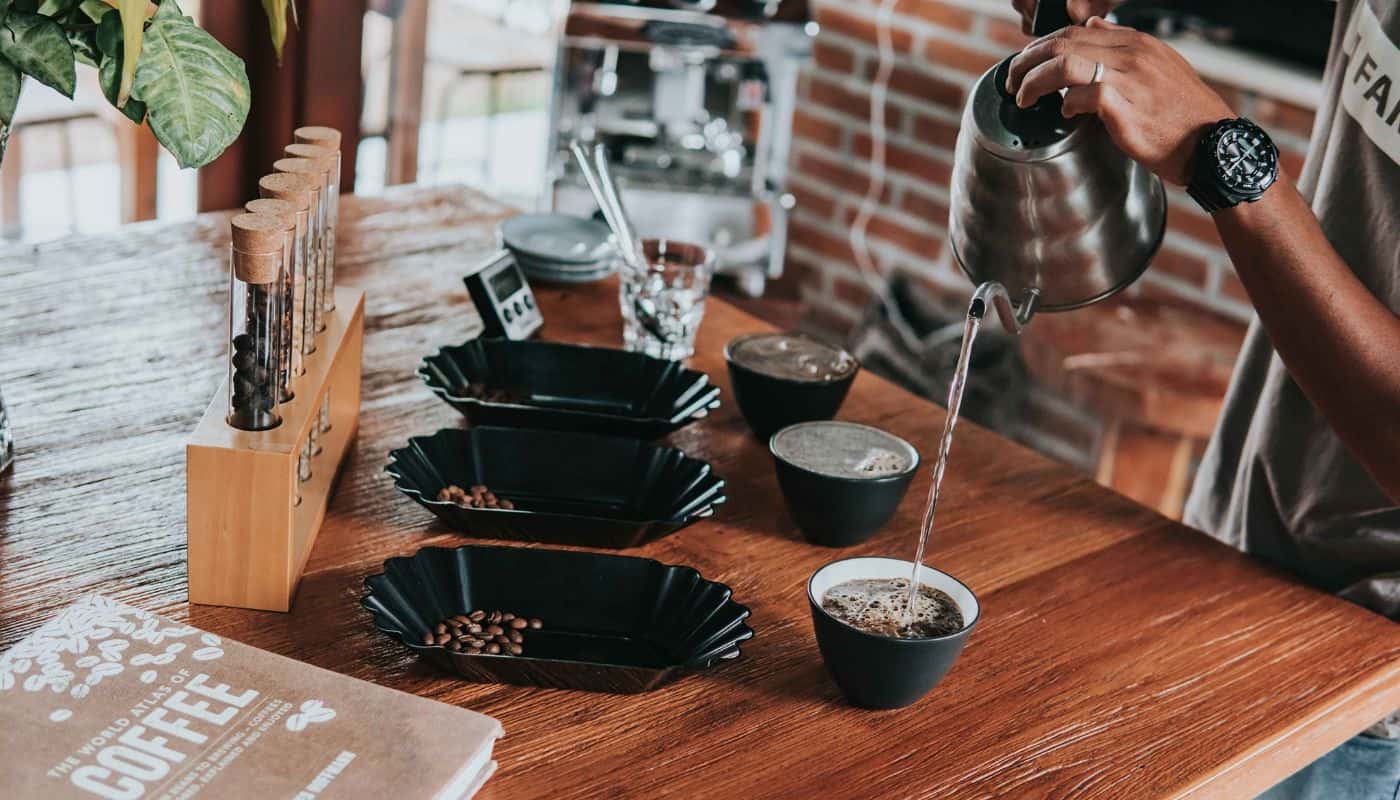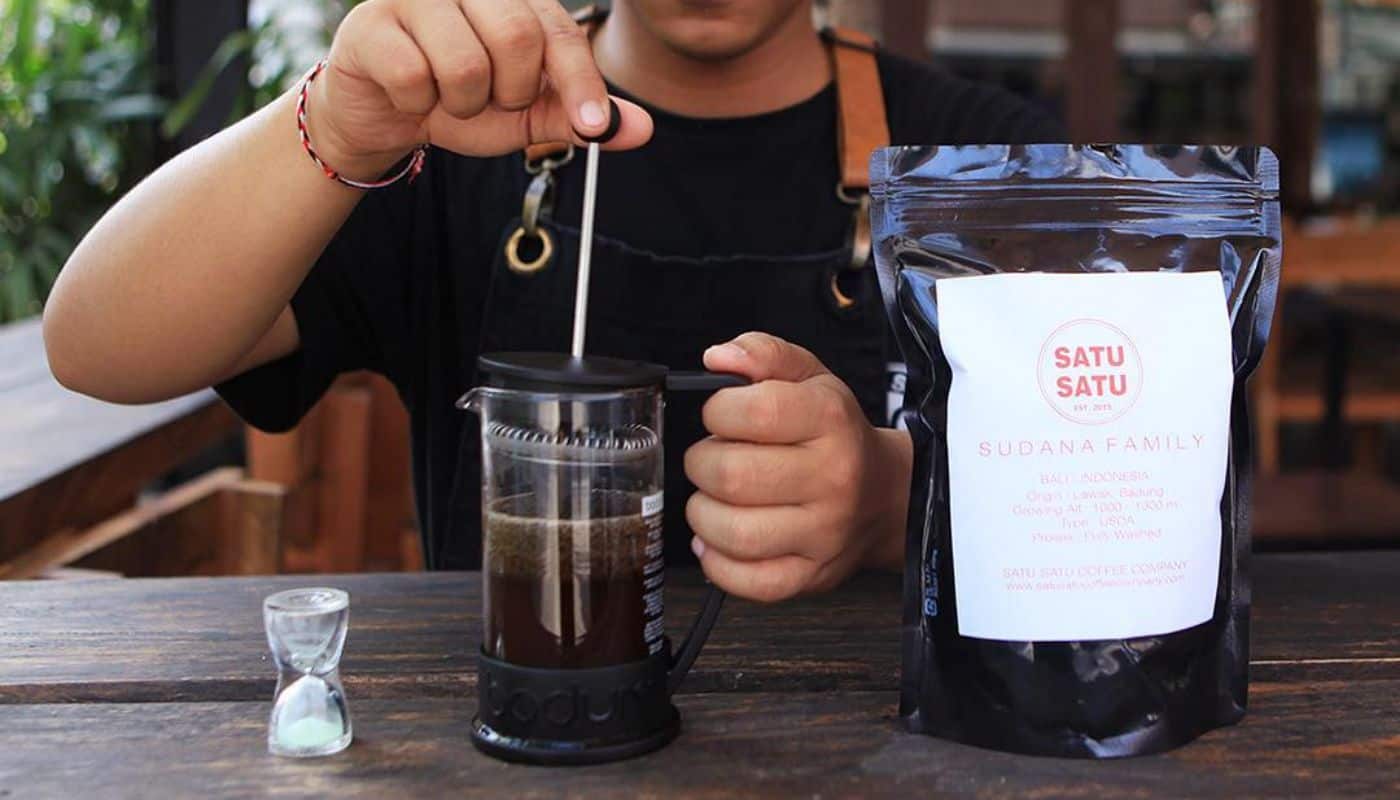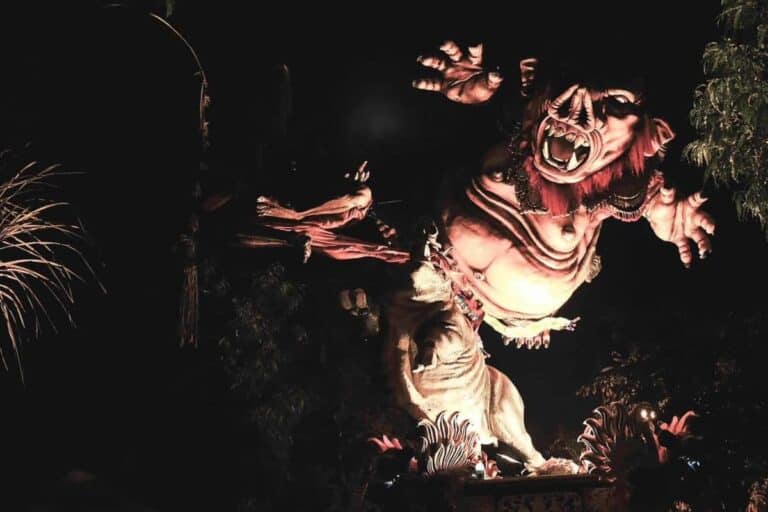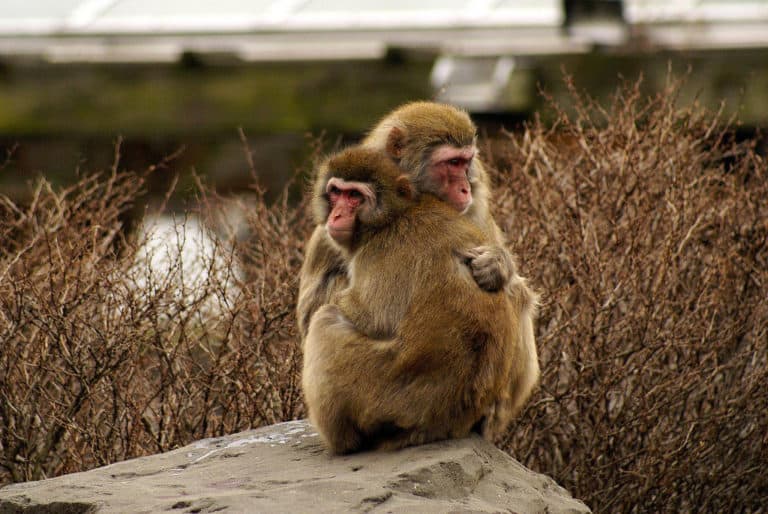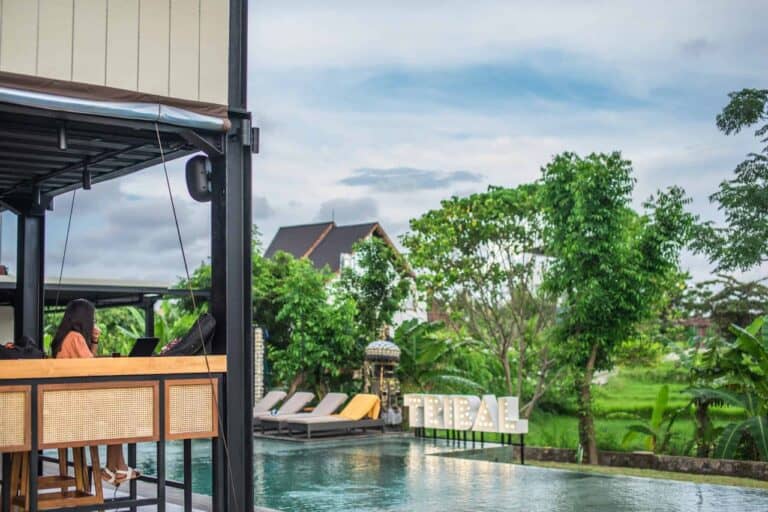Have you ever imagined consuming something passed through a cat? Like coffee?
It sounds disgusting, but it’s a ‘hit’, and strangely enough, extremely expensive.
Asian Palm Civet, or ‘Luwak’ in Indonesia, comes from the cat family.
At first, Civets were considered pests because they ate coffee beans, fruits, and even fowl, such as chickens and hens. Farmers used to hate them!
Now, these pests are incredibly valuable. Check out why!
The History of Luwak Coffee
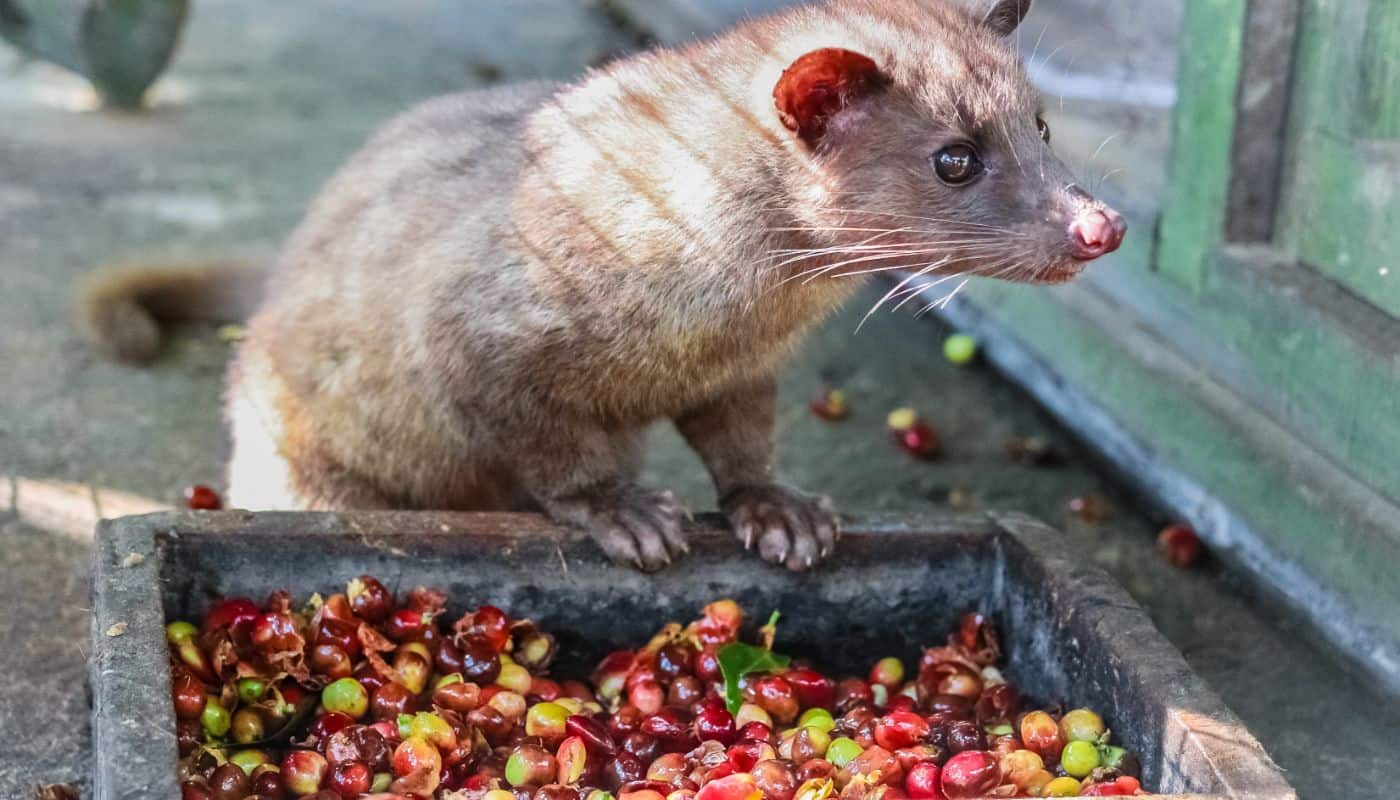
Luwak coffee is nothing new – it’s thought to have been around since the Colonial era!
In the early 18th century, Dutch colonizers prohibited local farmers from collecting coffee beans for personal use.
Of course, they still wanted coffee in some way.
The farmers found that Civets consumed coffee cherries, and excreted the undigested ones around their farms.
They collected, cleaned, roasted and ground them to produce their own coffee.
The news of this aromatic coffee caught the attention of the Dutch plantation owners.
It later became a favorite of the rich Dutch. Due to its rarity and unusual manufacturing process, Kopi Luwak has always been expensive.
Why is Luwak Coffee so Expensive?
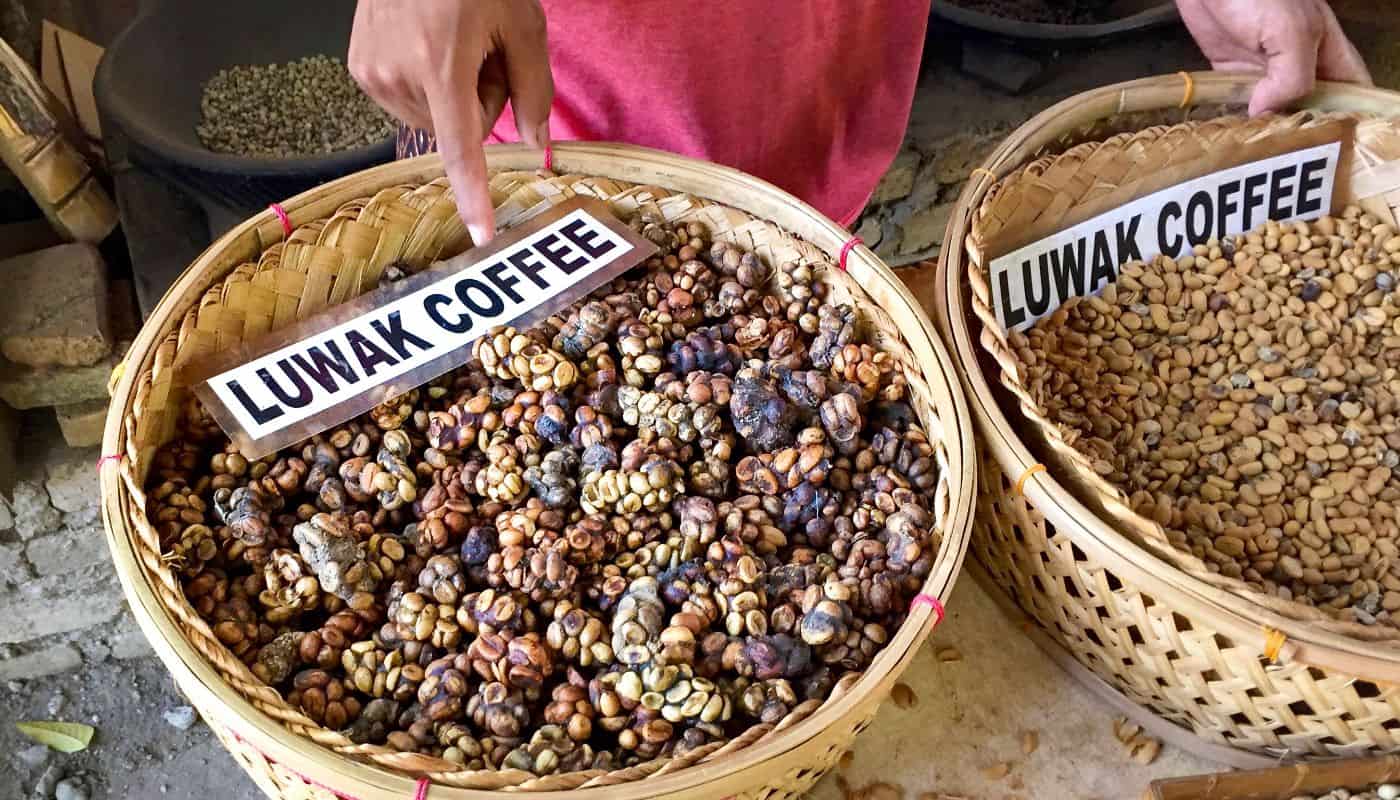
Civets only eat the ripe, and best quality, coffee beans as a snack.
Their digestion is pretty simple. They only digest the flesh of the coffee cherries, but pass the beans. The final flavor of Luwak coffee may even be improved because of the fermentation through their digestive system!
The coffee cherries remain intact during excretion, and are ready to be processed for consumable coffee. It’s a complicated process, giving a smoother and less acidic taste.
Civet coffee is extremely expensive as it is so rare and hands-on to produce. It has been categorized as one of the most expensive coffees in the world with prices reaching US$ 700 per kilogram.
Bali is one of the only islands that produce Civet Coffee as well as Sumatra, Sulawesi and Java.
Luwak Coffee in Modern Bali
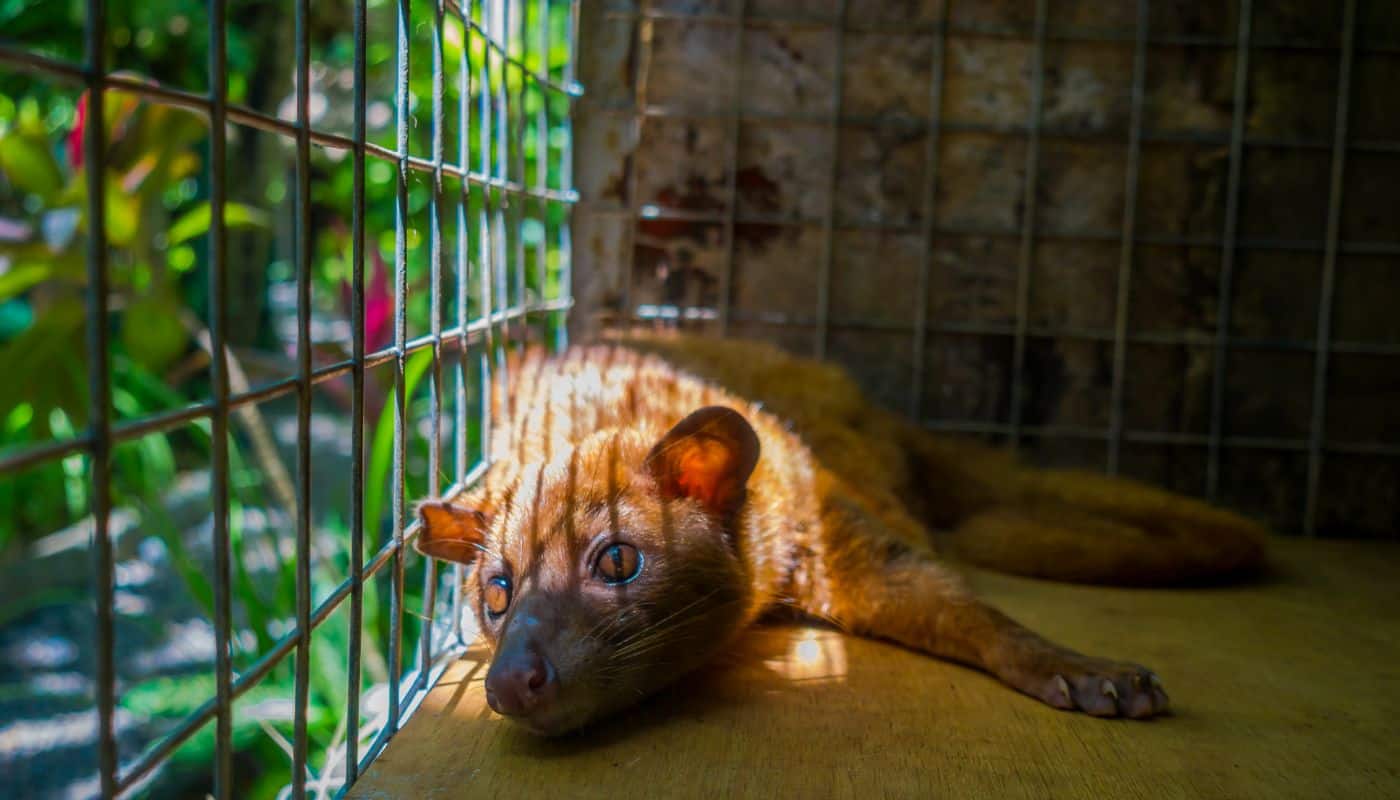
The OG Civet coffee comes from wild Civets. Back in the day, the farmers gathered the faeces from around the coffee plantations.
Now, the Civets are kept in a cage and forced to eat coffee cherries.
It’s not healthy or ethical. They are omnivores and need more than just coffee for a healthy diet. The coffee is killing them, alongside with the stress caused by being trapped in a cage.
They have even started acting abnormally in their entrapment. Constantly moving back and forth, circling, and biting their cages.
A 2013 BBC investigation found that this intensive Civet farming in Sumatra is a form of serious animal cruelty.
The conditions not only affect the Civet’s population, but also the quality of the coffee produced.
They are forced to eat any kind of coffee cherries, without having the ability to prioritize quality, as they used to do in the wild.
The flavor of the coffee on the market will have poorer quality, compared to the ones from the wild.
Should You Try it?
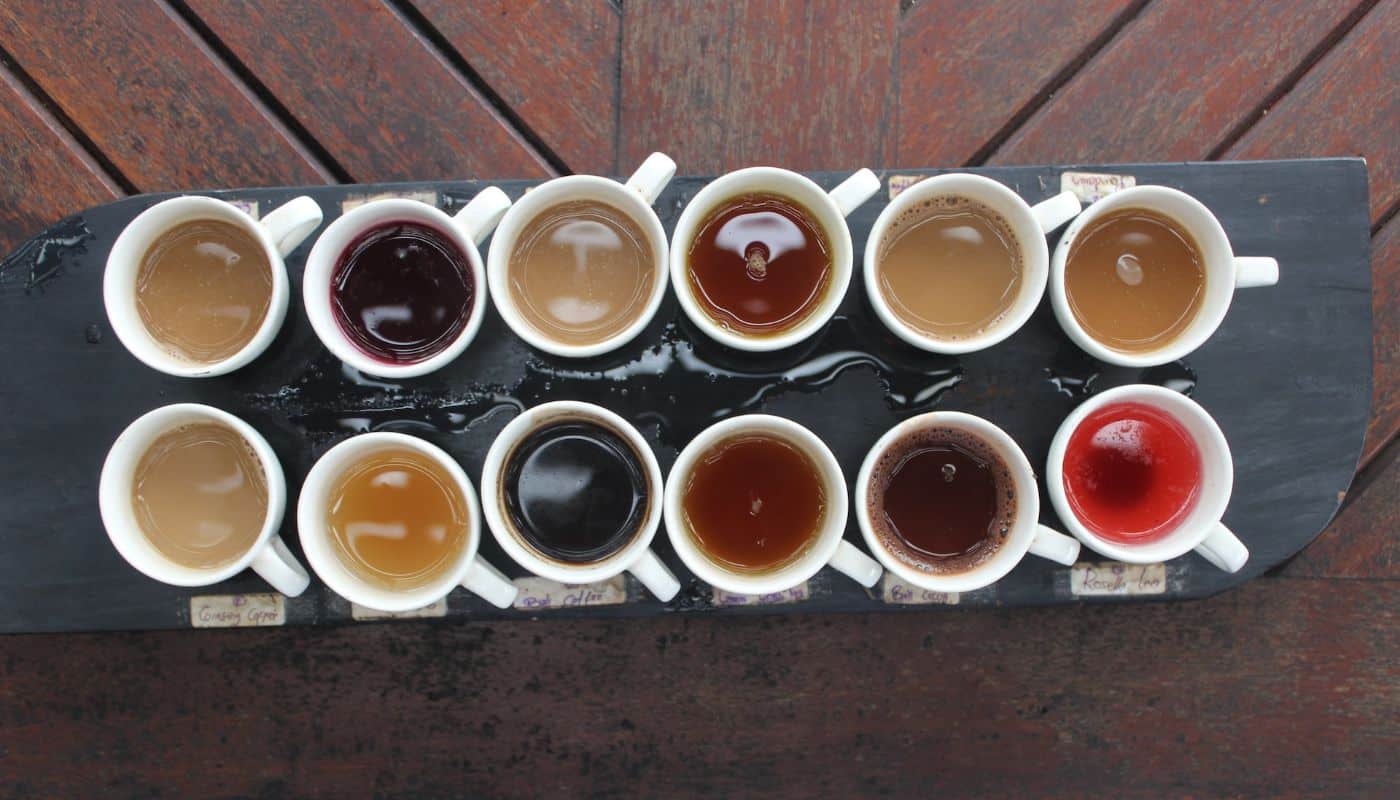
To drink or not, really it’s up to you.
We don’t believe in, nor support, the unethical practices of the luwak coffee producers in Indonesia.
- It is animal cruelty
The original civet coffee was made from beans that were eaten naturally by the civets. When it became famous, and incredibly valuable, people started finding dirty ways to make money. The civets are captured from the wild, placed in a small cage and made to endure harmful conditions. It’s led to a high mortality rate for civets.
- Fake versions
It’s not easy to find authentic ‘wild’ Civet coffee these days. There were some producers found to have committed fraud, as they put a “wild sourced” label onto coffee produced from caged Civets. Even crazier, fake Civet coffee is sometimes produced by simply rubbing coffee beans in the excrement of any old animal.
Ethical Luwak Coffee
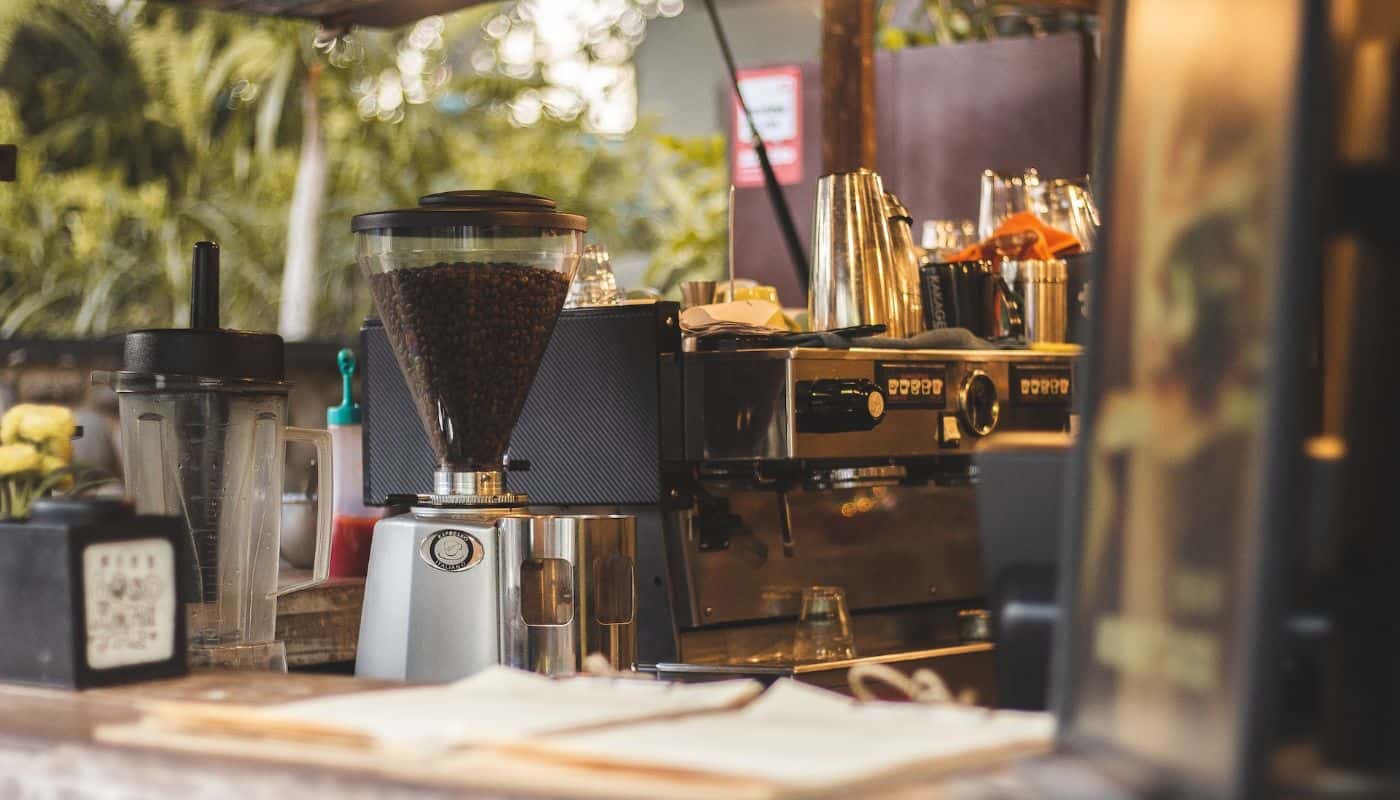
If you are really keen to try the famous coffee, here are some ethical brands:
Gayo Kopi’s coffee is collected by coffee farmers who have all the documentation to prove it is 100% wild. Their farm has standards for sourcing and processing wild coffee that have been recognized by organizations such as SCAI, SCAE, SCAA and the Indonesian Government.
Bali Beans Coffee & Company is owned by the Sudana family, located in the village of Lawak. The farmers head out every morning to pick up the civet droppings to be processed. It has been operating since 1985, with a focus on natural coffee production.
Satu Satu Coffee
The Satu Satu coffee company is also owned by the Sudana family, and is famous in Bali. Kopi Luwak is not their only product, they also process Kintamani and Espresso beans.
Final Thoughts
If you want to try Luwak Coffee, find a company that offers an ethical option.
Take a close look at their practices, and ensure no innocent animal is harmed for capital gain.
A sip of the liquid-gold will show you why it’s such a renowned beverage!

